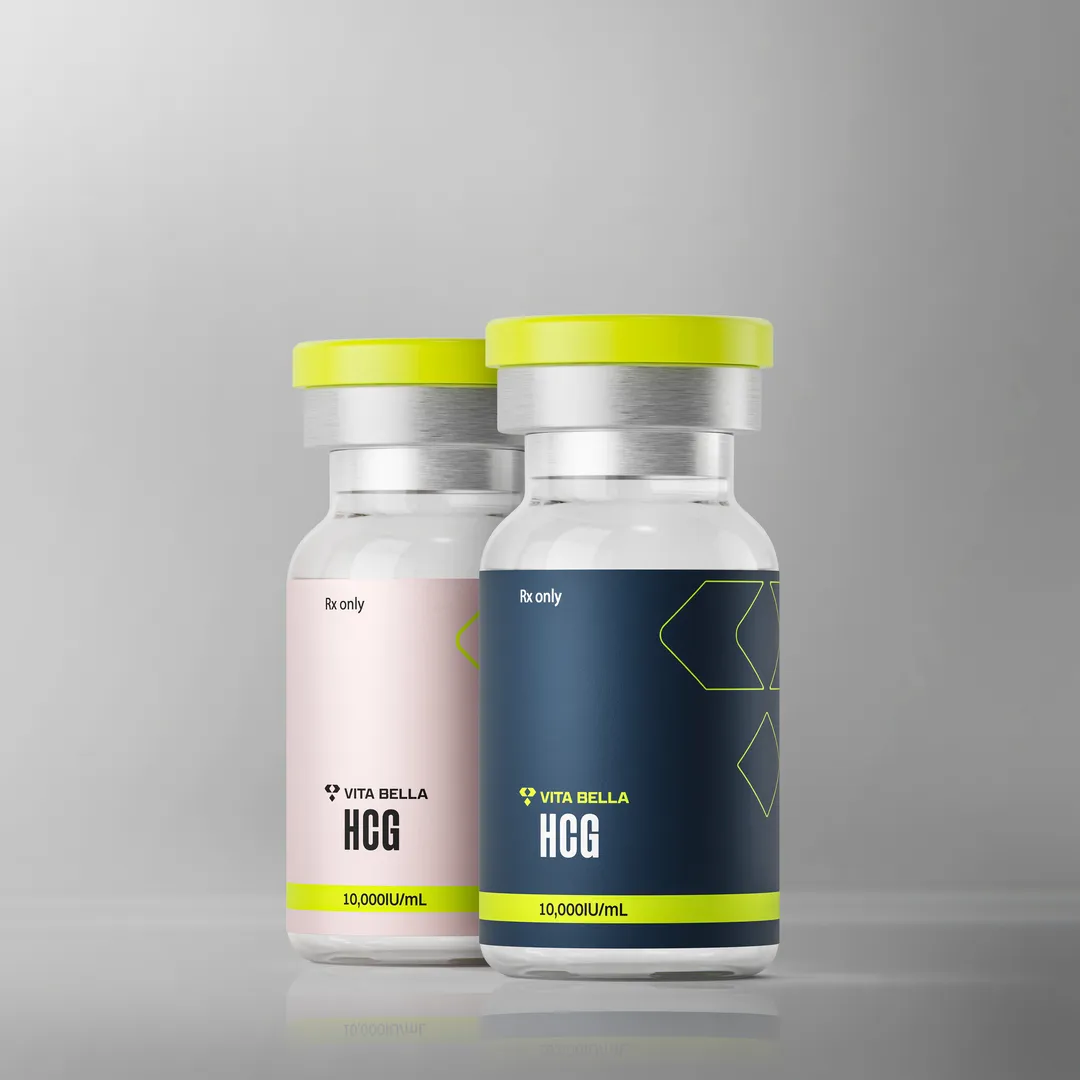How Do HCG Injections for Weight Loss Work?
HCG mimics the effects of luteinizing hormone (LH), a crucial regulator in both male and female reproductive systems. While HCG is traditionally used to trigger ovulation in women or stimulate testosterone and sperm production in men, research shows its potential to support fat metabolism when combined with a structured, calorie-controlled diet.
The idea behind hcg injections for weight loss is that this hormone can help preserve lean muscle mass while encouraging the body to use stored fat for energy. This approach differs from traditional diets that risk muscle loss during rapid weight reduction. Under medical supervision, HCG protocols aim to support sustainable fat loss while maintaining overall metabolic health.
Why Choose HCG Over Other Weight Loss or Hormone Therapies?
For many, traditional Testosterone Replacement Therapy (TRT) can suppress the body’s own hormone production and negatively impact fertility, especially in younger men. HCG offers an alternative by stimulating natural testosterone and sperm production, making it a preferred adjunct or standalone therapy for those wishing to maintain fertility while addressing symptoms of low testosterone or supporting weight loss efforts.
Additionally, studies indicate that hcg injections for weight loss may help preserve muscle mass and improve body composition, particularly in individuals with partial androgen deficiency or metabolic concerns.
Clinical Evidence Supporting HCG Injections for Weight Loss
- A 2021 review in the Journal of Obesity & Metabolic Syndrome highlights the potential of HCG, when used alongside a low-calorie diet, to promote fat loss while sustaining lean muscle tissue.
- Research in Andrology (2020) supports the role of HCG in hormone optimization, showing improved metabolic markers and body composition in men with hypogonadism.
- Clinical protocols often combine HCG with dietary counseling and medical oversight for optimal safety and results.
Additional Benefits of HCG Therapy
- Fertility Support: HCG can significantly improve ovulation rates in women with conditions like PCOS and boost sperm production in men with low counts.
- Hormone Balance: Used alone or with other treatments, HCG helps maintain natural hormone production, especially during or after fertility-preserving interventions.
- Treatment During Cancer Therapy: HCG can help preserve sperm production in men undergoing chemotherapy, supporting long-term reproductive health.
Safety, Side Effects, and Medical Guidance
HCG therapy, including hcg injections for weight loss, is generally well-tolerated when prescribed and monitored by a medical professional. Reported side effects are minimal but can include mild headaches, fatigue, or injection site discomfort. It’s essential to consult a physician to find out if HCG is right for your health profile, especially if you have pre-existing conditions or take other medications.
Medical supervision ensures that any weight loss program—including HCG protocols—is tailored to your needs, safe, and effective over the long term.
Key Takeaways: Is HCG Right for Your Weight Loss Journey?
HCG injections for weight loss offer a science-based, individualized option for those looking to achieve significant fat reduction while maintaining muscle mass and hormonal balance. Consistency, healthy nutrition, and an active lifestyle remain the foundation of any weight management plan—HCG is a tool that can complement these efforts under expert care.
Further Reading and Clinical References
- Journal of Obesity & Metabolic Syndrome (2021): Efficacy of HCG in Medically Supervised Weight Loss
- Andrology (2020): HCG Therapy and Metabolic Health in Hypogonadal Men
- Fertility and Sterility (2018): HCG for Sperm Preservation During Cancer Therapy
- Pasquali, R., & Casanueva, E. (2005). Human chorionic gonadotropin in the treatment of male infertility. Current Opinion in Urology.
- Coviello AD, et al. (2005). Low-dose human chorionic gonadotropin maintains intratesticular testosterone in men.
- Liu PY, et al. (2002). Recombinant HCG and muscle strength in older men.








